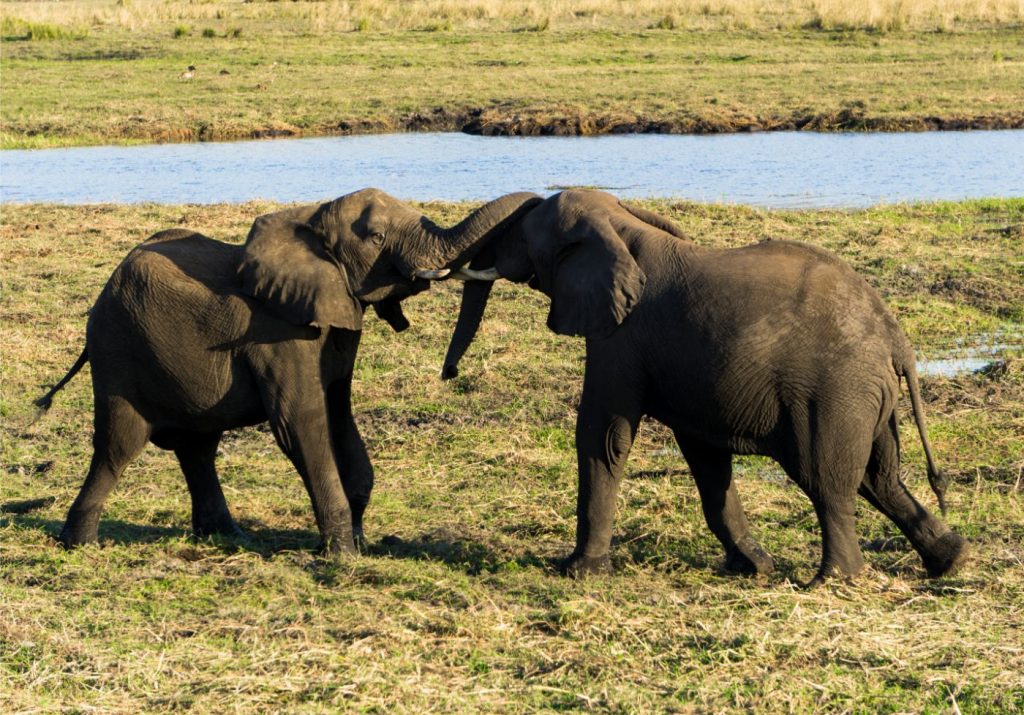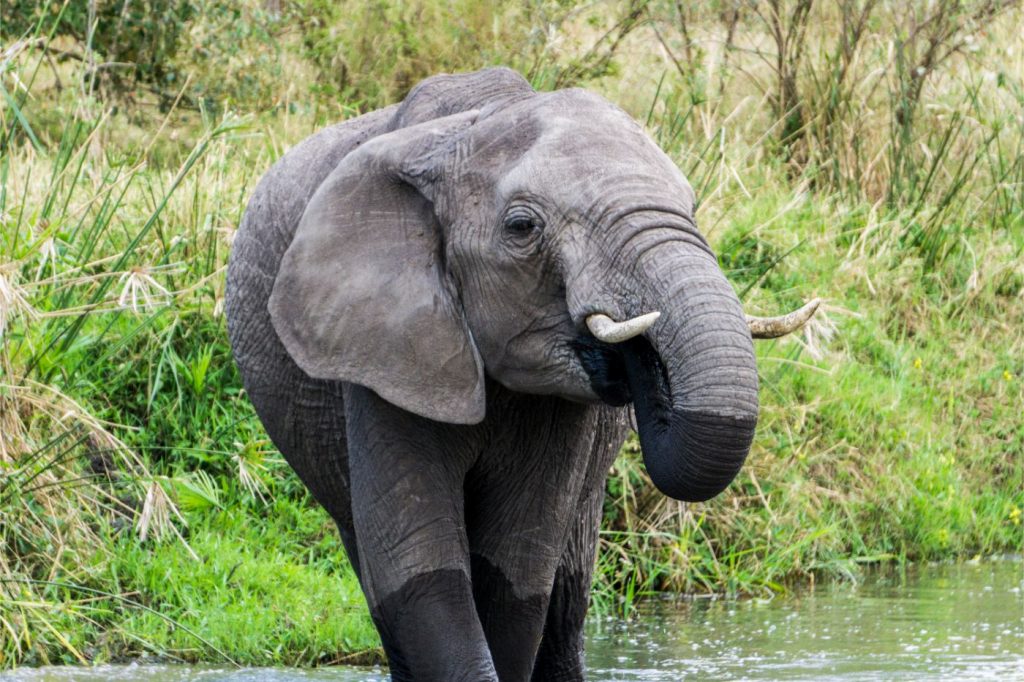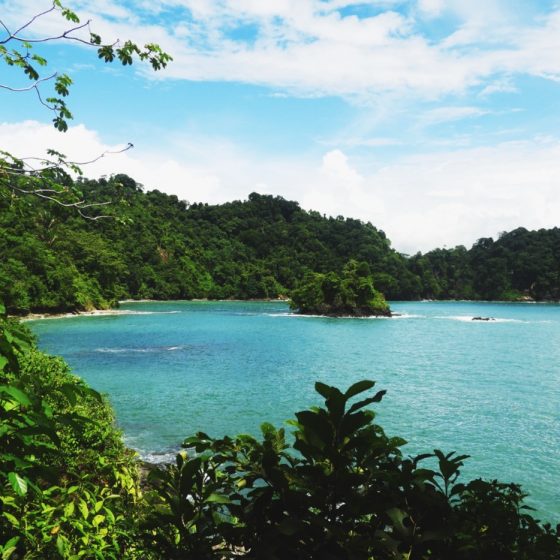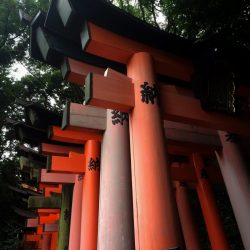Intro.
You are working in your office in the Western World. One day you spot a mouse running around in the office building. What is your reaction? Personally, I believe that the majority of us would immediately call somebody to remove it. But why? After all, the mouse is not dangerous, neither does it impact your livelihood. Still, we would remove it.
Now imagine an animal much bigger, unknowingly destroying your livelihood and potentially injuring your loved ones. At the same time, plenty of people pass through your town to watch and marvel those huge animals that represent a huge danger for your daily life. On top of it, they spend a huge amount of money to do so. Money that you, however, will never see. In the end, you end up in a situation, were you can’t gain but lose everything.
What do you do?
The purpose of this little introduction story was to give a short glimpse in the current state of wildlife and local population conflict all over the world. An argument, which, for example, the recent decision to reintroduce hunting of elephants in Botswana was made on. Thanks to the great opportunities to see wildlife in their natural habitat, I felt an obligation to write my point of view about this topic.
First things first, it is never as easy at it seems. Reintroducing hunting on a critically endangered species is wrong, probably we all can agree on that. Nevertheless, in order to change the current course, prevent future decisions like this and preserve elephants and many other magnificent species, we have to understand where this tension is coming from and that’s when it gets tricky.

Current Situation
Let’s dive into the current situation of Botswana because only staying on the surface by judging the final action (reintroduction of elephant hunting) doesn’t get us anywhere. For many years Botswana was considered a sustainable tourism role
The reasons for this are that unlike many other African countries, Botswana’s National Parks are not fenced, so
According to the last counting in 2014, the elephant population in Botswana is around 130 000, which represents roughly a third of the entire elephant population in Africa.
“According to the last counting in 2014, the elephant population in Botswana is around 130 000, which represents roughly a third of the entire elephant population in Africa.”
The statistics underline what an important pillar Botswana represents when it comes to elephant and wildlife conservation. So let’s attempt to untangle the intervening problems a bit.
Why elephants?
Elephants are not only fascinating and majestic animals, but they are also one of those species that scientists call keystone species. This is due to the positive impact that elephants have on their environment, but even more by their cultural status in our world. In
“In fact one elephant alone generates a value of 1,6 million US-$ for local economies, travel companies and airlines, in their life.”
Everybody loves elephants, which motivates many people (including me) to travel to Africa to see them in their natural habitat. Elephants are one of those species that everyone wants to see, thereby, other smaller or less promotable species can thrive as well thanks to the habitat protection. That’s why losing elephants would potentially start a chain reaction of wildlife distinction in the area where elephants vanish. The big problem is that elephants are currently vanishing at a fast pace. In the past 7 years, we already lost 30% of them. The major reasons are illegal poaching, habitat destruction, and human conflict.
The first reason is covered widely in the western media landscape which is why in this article I will focus on the other two problems. However, if you are interested in illegal elephant poaching I can highly recommend the Netflix documentary “The Ivory Game” (trailer below).
Habitat Destruction
There is a high chance you are currently reading this article from your flat, office, restaurant, etc. in the Western World, how well do you think we handled nature conservation in the past? One thing that annoys me the most in this debate is that we are unfortunately in no position to judge other nations about their interaction with mother nature. After all how much real wilderness still remains where you are? Most natural forests are chopped down in the process of economic growth and most natural wildlife got extinct.
Just recently my home country Germany had a fierce debate about the growing wolf population and how to handle them in the future because conflicts apparently increased. To put this into the perspective of Botswana’s wildlife population, we are talking about a population of 800 wolves in one of the richest countries of the world.
If we don’t manage to preserve wildlife, how can we judge others? That, however, doesn’t mean that the Western world cannot assist African countries, by sharing their past mistakes as well as resources & minds, so that wildlife & habitat loss will be minimized on the African continent.
This is desperately needed because the African continent is the area that currently shows the highest population growth in the entire world. The survival of elephants and other African wildlife is unwillingly tied to how African governments will manage to increase the living standards of a growing population, while at the same time guarding one of the last wild places on this planet.
“The survival of elephants and other African wildlife is unwillingly tied to how African governments will manage to increase the living standards of a growing population, while at the same time guarding one of the last wild places on this planet.”
Many African countries currently struggle to find the right balance (which is heavily based on historical and economical power grip by the western world, but I am not elaborating on this topic at this time), which is one of the reasons why nowadays so many elephants can be found in Botswana.
17% of the entire country are National Parks or private game reserves (in Germany only around 4% ), creating the desperately needed safe haven for elephants in this region. This status, however, creates points of conflicts, which brings me to the second big problem.
Human & Wildlife conflict
Due to their sheer size and calories intake, elephants can hardly be compared to mice, which we covered at the beginning of this article. Many conflicts arise around elephants that destroy crops or injure people when they stroll into human populated areas. Therefore, it is crucial to take these interactions seriously and empathize with those that share daily contact points with these animals.
In my personal opinion, the core problem in the entire debate is not the human & wildlife conflict but rather a debate of inequality, elephants are solely the embodiment of the problem, here is why.
Currently, 80% and growing, of the trips that are sold to Africa are due to the unique wildlife of the region (making it the most important segment), which is great news because it shows that wildlife is indeed interesting to see. Nevertheless, this money that gets created along the trip of these visitors is rarely arriving at the local communities that surround this National Parks and Game Reserves.
“Currently, 80% and growing, of the trips that are sold to Africa are due to the unique wildlife of the region (making it the most important segment), which is great news because it shows that wildlife is indeed interesting to see.“
This creates a form of double-punishment because local people have to bear the entire costs of wildlife, which in their situation is very severe, while not seeing any or enough profit to benefit from the wildlife in their neighborhood.

So what can we do?
I strongly doubt that a boycott of Botswana, as I read it a couple of times by now, is the right choice in this discussion. To be honest, I think the contrary is the case. Now more than ever we need to travel to countries like Botswana, that heavily depend on tourism to show them that people do care and that the value of these animals is far bigger when they are alive. Otherwise, the country will be swarmed by hunters that just have been waiting to kill some elephants, now even giving them some social justification to feel like heroes.
However, to break the wheel (yes I am quoting Game of Thrones here) we need to start traveling differently, especially in Africa. We need to start to travel in a way that not only serves ourself but also improves the lives of the local communities and wildlife, that share a common living place. If you are lucky to plan your next trip to Africa, try to keep this in mind.
Here are a few tips on what you can do, to ensure exactly that:
- If you don’t like to plan the trip by yourself, go with a local agency. They are better equipped to generate a richer experience for yourself, but they also know the best local partners to assure that as much money as possible stays within the country (Evaneos, for example, has a big network of local agencies)
- When you book the accommodations ask or check if they are owned or at least run by local communities or how many local people the lodge employs. There are lodges and National Parks that predominantly hire local people as guides, cooks, receptionists, etc. while also creating the local infrastructure that can help to improve the situation for the next generation. (If you are lucky and go to Botswana soon you should definitely sleep a night in Elephants Sands)
- Same goes for your safari company, ask some questions where the guides are coming from and if the company has some guidelines of respectful wildlife watching, only if the demand for sustainable practices rises, companies will shift to practices that are more local & environmental friendly.
- Talking about wildlife watching, check while you are on safari if the guide keeps a respectful distance to those wild animals. A good rule of thumb, if the animal is changing is behavior or direction, you are too close. Also, take the chance to ask as much possible, so that you will return as a walking animal encyclopedia and warrior for the survival of wildlife.
- Before visiting the National Park, also make sure to spend some money in the surroundings, by buying some souvenirs, food, art or other services to support the local economy. Even if the prices might be higher, you will have a much bigger positive impact here.
- Last but not least you can always find local NGOs that continuously fight to protect African wildlife. I for example monthly donate to the African Wildlife Foundation, but there are also smaller local ones like Elephants Without Borders.
- If you want to find more sustainable travel tips you can find some here
Conclusion
Summarizing we have to compensate local people, which are sharing a home with wildlife, for the costs that arise. As well as, increase the benefits for them, so that they understand that striving wildlife is actually in their interest. Both governments and we travelers can support Botswana and many other African countries on this difficult road in the future.
In the end, it can be quite easy, but only if we chose to do so. We have to start valuing nature in the same way we value our human accomplishments. If we manage to co
Planting trees and expanding habitats, will not only help us to fight climate change but also to preserve natures last fortresses, where we can shut off from our daily routine that is dictated by technology. We need to start to see wildlife as a heritage, as much as we do it with our own cultures, buildings and so on. Most of
What do you think about this difficult topic? We would love to hear your opinion on this! This article is based on my personal opinion and I don’t mind at all to debate about it. So let’s start to talk and preserve what we love.






